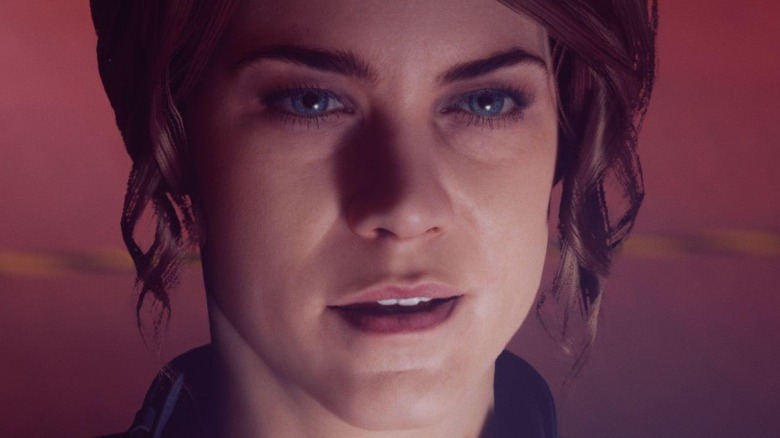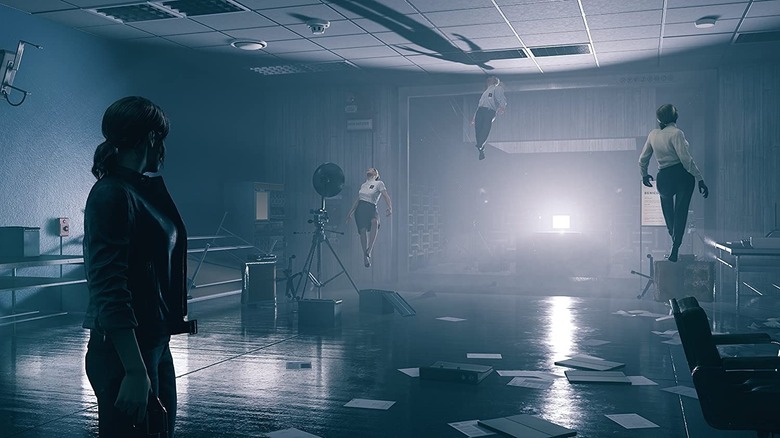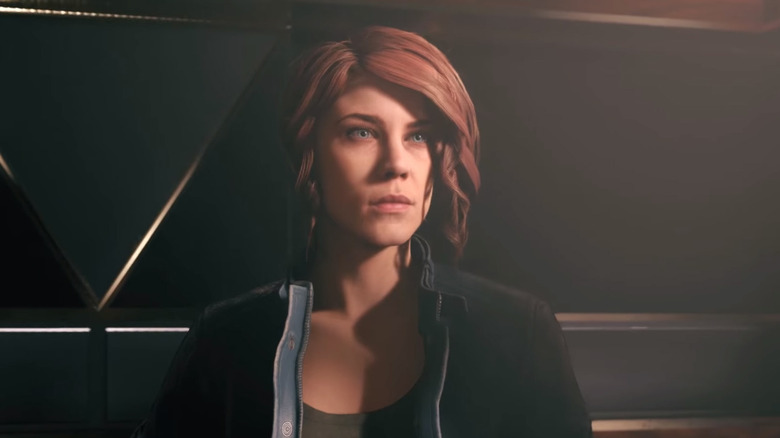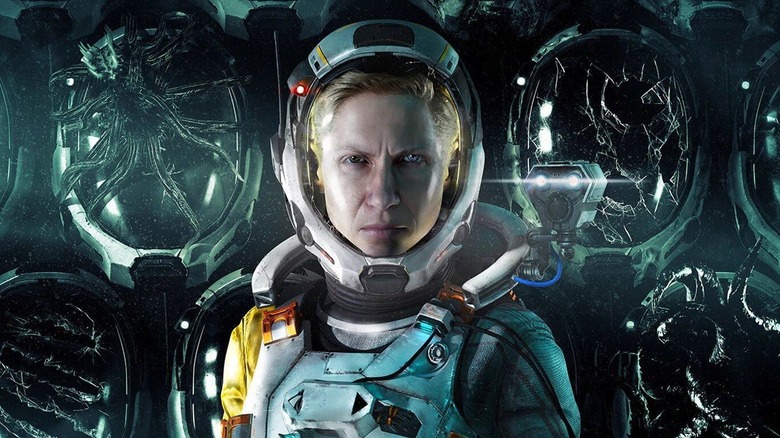Control: How Remedy Created A New Type Of Game Protagonist With Jesse Faden
When sci-fi action-adventure "Control" released in 2019, it drew praise from critics and players for its setting, design, gameplay, cast, writing, and visuals. Outlets like IGN and GamesRadar+ named it their game of the year, and the title went on to receive two expansions: "AWE" and "The Foundation." "Control" also kicked off the next chapter for developer Remedy Entertainment, ushering in the Remedy Connected Universe.
Set within the Oldest House, the headquarters of the Federal Bureau of Control, the game follows Jesse Faden and her quest for answers. While her story sometimes gets lost amidst the supernatural encounters and ever-shifting architecture of the agency, this does not lessen her significance. Far more than her powers or position as the latest Director, a lot of time, care, and effort went into her portrayal. In fact, Jesse represents an important shift towards a new type of protagonist – both for Remedy and the industry as a whole.
Jesse disrupts the status quo
Jesse Faden serves as a catalyst for change in multiple ways. "Control" marks the first time Remedy featured a woman as a main character. While the industry has seen more female protagonists in recent years, the majority of video games still focus on male leads. This trend persists despite the fact that women accounted for nearly half of the gamers in the United States in 2021 (via Statista). However, developers like Remedy have realized the importance of telling other types of stories. "It's a new kind of an experience that needs a new kind of a hero," creative director Sam Lake asserted in a developer diary.
Just as in real life, Jesse disrupts the status quo within the setting of "Control." She arrives to find the heavily structured Bureau in chaos, its surviving employees left to face an otherworldly threat unlike any they have encountered before. "Jesse is clearly meant to be a juxtaposition for what's happening currently in the Bureau," explained narrative systems designer Eevie Korhonen. "There's this old guard, old guys who clearly let things go really bad, and then this young woman comes in and is gonna set things right."
While the Bureau struggles to combat the Hiss with science and research, Jesse approaches the situation with an intuition honed by years of paranatural experiences. "She maybe has a kind of an emotional connection to this world that maybe our previous protagonists haven't initially had," reflected "Control" game director Mikael Kasurinen.
Jesse avoids the pitfalls of the 'strong female character' trope
Thanks to a growing focus on representation, games and other forms of media have begun to explore characters beyond the confines of traditional gender roles. Despite some positive results, this shift has also had unfortunate side effects, including the rise of the "strong female character" trope.
"'Strong female character' is one of those shorthand memes that has leached into the cultural groundwater and spawned all kinds of cinematic clichés," Carina Chocano wrote for The New York Times. "I get the feeling that what most people mean or hear when they say or hear 'strong female character' is female characters who are tough, cold, terse, taciturn and prone to scowling and not saying goodbye when they hang up the phone."
Instead of appearing detached and unapproachable, Jesse enters each situation with empathy and curiosity. Though she doesn't know anyone at the Bureau, she goes out of her way to help those she can – despite the devastating toll the organization's tactics have taken on her own life. She comes in search of answers, but she also wants to connect with others and feel a sense of belonging. She experiences both for the first time in the Oldest House.
"She's searching to find something and people are telling her, psychiatrists, therapists, that she's crazy or that what she believes isn't right," Courtney Hope, the voice actor for Jesse, told Bloody Disgusting. "I just really think that for her, her mind is her best friend. Her intuition is her best friend." As detailed in a Q&A session, Hope drew inspiration from her mother, grandmother, aunts, and other women around her to portray Jesse. She used these figures and experiences to convey a form of everyday strength that players of all genders can relate to even as Jesse navigates a host of supernatural situations.
Jesse may have paved the way for protagonists like Returnal's Selene
After her time as the narrative systems designer for "Control," Eevi Korhonen moved to Finnish studio Housemarque. There, she served as a senior narrative designer for "Returnal," the PS5 exclusive that propelled gaming into new realms of possibility. One of the best releases of 2021, the sci-fi roguelike follows Selene, a space scout who finds herself trapped in an endless cycle of life and death after crash landing on an alien planet.
Just as Jesse and "Control" did for Remedy, Selene and "Returnal" marked a new stage in Housemarque's evolution. Korhonen acknowledged the parallels between the two companies in a 2022 interview with VGC. "I had this idea that Housemarque and Remedy are essentially going for the same thing in different directions," she said. "Housemarque is known for its gameplay and Remedy is known for its storytelling, and with 'Control' and 'Returnal' they're starting to edge together, so I think it's natural that they feel similar."
Creative director Harry Krueger already had a direction in mind for "Returnal" when Korhonen joined the project, one she felt she could contribute to. "It was dark, it was creepy. But it also dealt with really mature themes. I wanted to make sure we hit that mark and treated the topics respectfully," she explained. "I was also really interested because it was like 'hey, we could do an older female protagonist who's not on this pedestal of being perfect in every way. She's done a lot of things she's not proud of.'"
While not opposed to male protagonists, Korhonen felt developers had already told many of those stories. Narratives with female leads, especially those grounded in reality through relatable flaws and strengths, offer perspectives players haven't seen before. The strong response to both "Control" and "Returnal" has set the stage for even more female-led video games in the future.




